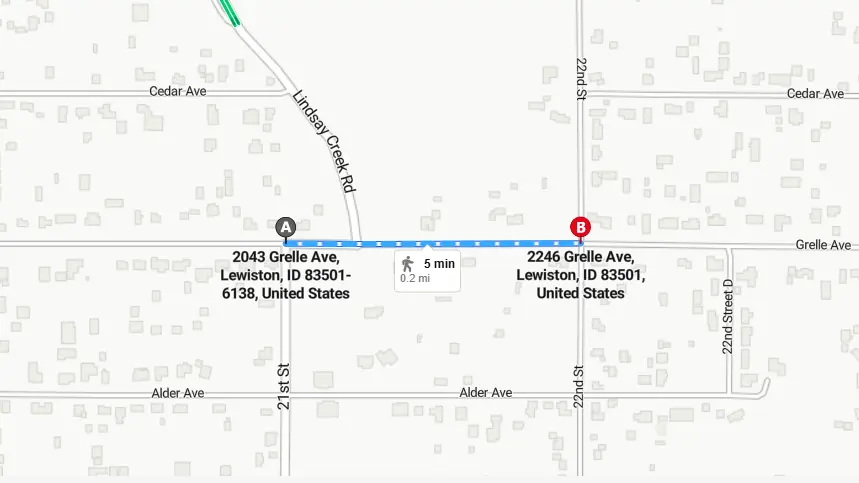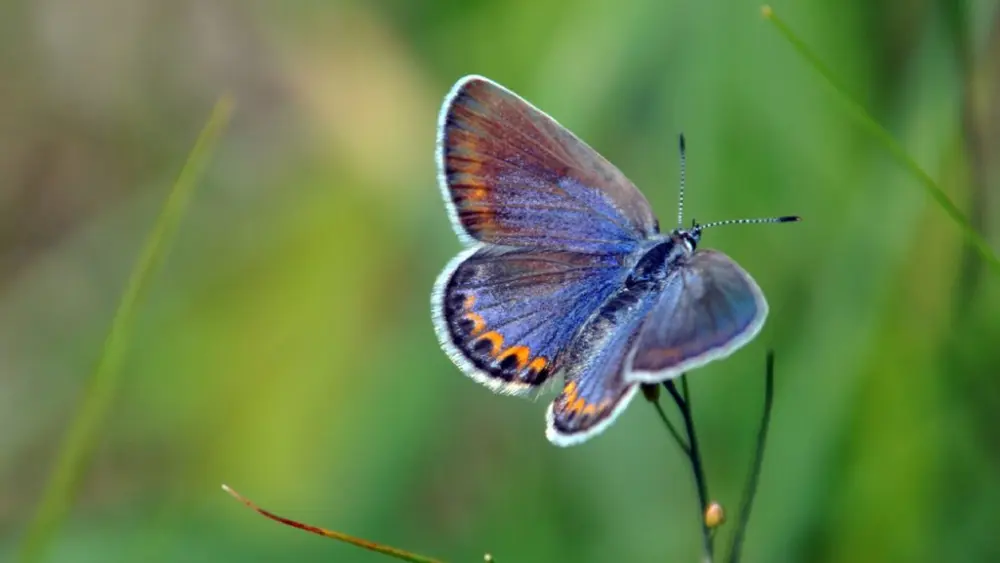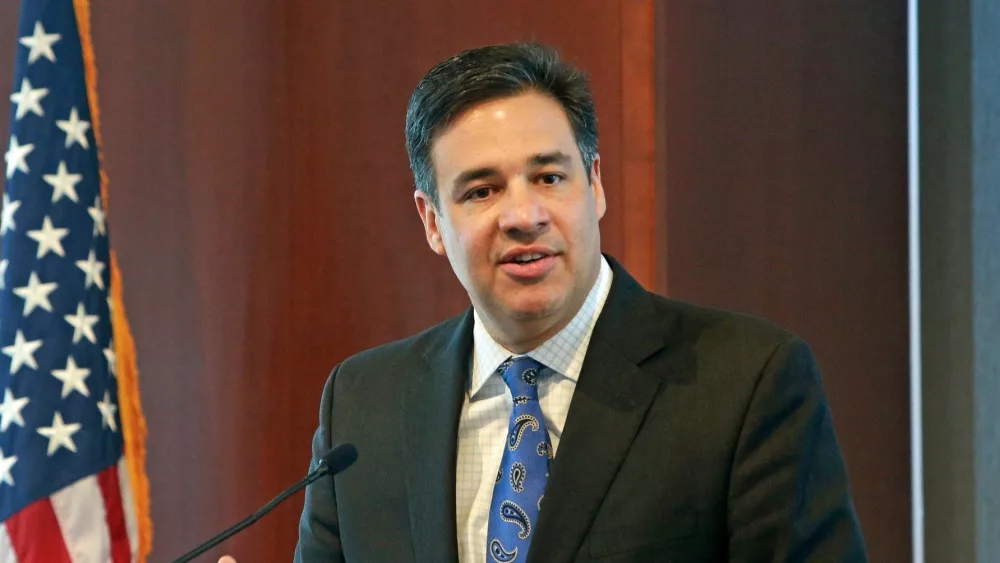By Joe Roberts, College of Agricultural, Human, and Natural Resource Sciences
Washington State University’s new Institute for Northwest Energy Futures (INEF) is partnering with the WSU Extension Energy Program to come up with solutions for how to better supply affordable, sustainable energy to the people and enterprises of Washington state.
The institute is led by inaugural Director Noel Schulz, WSU’s first lady and professor in the School of Electrical Engineering and Computer Science.
“INEF is committed to building bridges with the WSU Extension Energy Program to address the pressing energy challenges facing our region,” Schulz said. “Through this partnership, we aim to position Washington for a cleaner energy future by taking initiative on key decarbonization goals while continuing to meet our energy needs.”
To better connect each institution, long-standing WSU Extension faculty member Chad Kruger has been appointed as the INEF assistant director for Extension, agriculture, and outreach. Kruger, who directs WSU’s Center for Sustaining Agriculture and Natural Resources (CSANR), a WSU Extension program with a history of energy-related work, will now split his responsibilities between INEF and CSANR.
The new institute will draw on the boots-on-the-ground expertise of WSU Extension’s Energy Program, a public-serving project with roots in the 1970s that began in response to the energy crises of that decade.
“The Extension Energy Program brings a track record of addressing real-world energy challenges in the Northwest and beyond,” Kruger said. “They have over 40 years’ experience of practical energy impacts and outreach.”
Kruger himself has worked on a range of energy initiatives across Extension and WSU’s College of Agricultural, Human, and Natural Resource Sciences, from food production to food processing and storage. With this new partnership, he sees potential for bridging WSU energy research and academics with Extension outreach and service.
The WSU Extension Energy Program operates similarly to a consulting firm. Self-funded through contracts, the program offers information and expertise to businesses, utilities, local governments, tribes, schools, and consumers.
Its main area of focus is Alaska, Washington, Oregon, Idaho, and Montana. Projects also bring WSU expertise to other states and countries. Contracts with Nike, for example, led to proposed energy-saving initiatives for manufacturing plants in Vietnam and China.
Jim Colombo, interim director of the WSU Extension Energy Program, often sees the significant cost and energy savings that can result from seemingly minor adjustments to business operations.
“Organizations are often surprised at the amount of money saved from something as simple as switching out incandescent and fluorescent lamps with LED lighting or increasing the amount of insulation,” he said. “A lot of our work deals with improving residential energy efficiencies, such as testing carbon dioxide-based heat pumps in multiple environments around the state.”
The WSU Extension Energy Program is currently seeking a permanent director to help lead it through a new era of service to the Pacific Northwest.
“There is so much potential and opportunity ahead,” Kruger said. “At the nexus, INEF brings a high level of academic assets, scientific rigor, and policy expertise to the table. These innovative partnerships are going to drive meaningful progress toward a more sustainable energy future.”
The institute is led by inaugural Director Noel Schulz, WSU’s first lady and professor in the School of Electrical Engineering and Computer Science.
“INEF is committed to building bridges with the WSU Extension Energy Program to address the pressing energy challenges facing our region,” Schulz said. “Through this partnership, we aim to position Washington for a cleaner energy future by taking initiative on key decarbonization goals while continuing to meet our energy needs.”
To better connect each institution, long-standing WSU Extension faculty member Chad Kruger has been appointed as the INEF assistant director for Extension, agriculture, and outreach. Kruger, who directs WSU’s Center for Sustaining Agriculture and Natural Resources (CSANR), a WSU Extension program with a history of energy-related work, will now split his responsibilities between INEF and CSANR.
The new institute will draw on the boots-on-the-ground expertise of WSU Extension’s Energy Program, a public-serving project with roots in the 1970s that began in response to the energy crises of that decade.
“The Extension Energy Program brings a track record of addressing real-world energy challenges in the Northwest and beyond,” Kruger said. “They have over 40 years’ experience of practical energy impacts and outreach.”
Kruger himself has worked on a range of energy initiatives across Extension and WSU’s College of Agricultural, Human, and Natural Resource Sciences, from food production to food processing and storage. With this new partnership, he sees potential for bridging WSU energy research and academics with Extension outreach and service.
The WSU Extension Energy Program operates similarly to a consulting firm. Self-funded through contracts, the program offers information and expertise to businesses, utilities, local governments, tribes, schools, and consumers.
Its main area of focus is Alaska, Washington, Oregon, Idaho, and Montana. Projects also bring WSU expertise to other states and countries. Contracts with Nike, for example, led to proposed energy-saving initiatives for manufacturing plants in Vietnam and China.
Jim Colombo, interim director of the WSU Extension Energy Program, often sees the significant cost and energy savings that can result from seemingly minor adjustments to business operations.
“Organizations are often surprised at the amount of money saved from something as simple as switching out incandescent and fluorescent lamps with LED lighting or increasing the amount of insulation,” he said. “A lot of our work deals with improving residential energy efficiencies, such as testing carbon dioxide-based heat pumps in multiple environments around the state.”
The WSU Extension Energy Program is currently seeking a permanent director to help lead it through a new era of service to the Pacific Northwest.
“There is so much potential and opportunity ahead,” Kruger said. “At the nexus, INEF brings a high level of academic assets, scientific rigor, and policy expertise to the table. These innovative partnerships are going to drive meaningful progress toward a more sustainable energy future.”




